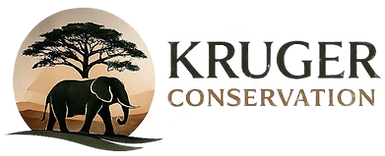A Day in the Shadows: From the Life of a Leopard in the Greater Kruger Region
- krugerconservation

- Oct 29, 2025
- 3 min read
Before Dawn: The Watcher Awakes

Before the first light touches the sky, my eyes open. The night has been cold and full of
secrets. I lie high in the branches of an old Marula tree, safe from the curious hyenas whose howls
echo in the distance. Below, the mist weaves through the tall grass, and an eagle calls far away. For
me, this is the signal of a new day, an invitation to hunt, to learn, and to survive.
The Hunt Begins
I move down from the tree slowly, each step deliberate, each motion silent. I prefer to hunt while
the darkness still protects me. My senses are sharp. I hear the faintest crack, smell the subtle shift of
the wind, see the soft shapes of animals that do not yet know I am watching. A young impala stands
near the waterhole. Seconds pass, then I leap. Adrenaline surges through my body, my heart beats
fast, and every muscle tightens. A single bite to the throat ends the struggle swiftly. It is not cruelty,
only life’s ancient rhythm continuing as it always has.
Masters of Silence and Strength
I drag my prey back into the tree. It takes strength, but the height keeps it safe from lions and
hyenas. I know these rivals well. Lions rule the open plains with noise and power, but I am the ruler
of shadows. My kind moves unseen, precise and patient. We can lift prey that weighs twice as much
as our own bodies. It is this power, combined with silence, that makes us one of Africa’s most
skilled hunters.
The Long Rest and Constant Vigilance
The sun rises higher and I search for shade. Young leopards often rest up to twenty hours each day
to preserve their energy. Hyenas prowl nearby, clever and restless, waiting for a chance. A single
mistake can mean the end of a hunt, or of me.
Life, Territory, and Survival

My territory stretches for many kilometers. I mark it with claw marks and scent, memorizing every
path and hiding place. Only during the mating season do I share my solitude. After about one
hundred days of pregnancy, a female gives birth to two or three cubs, hidden safely in dense bush or
among rocks. We learn early to rely only on ourselves. Many do not survive their first years: lions,
wild dogs, and hunger take their toll. Those who endure become masters of adaptation.
The Challenges of a Changing Land
I hunt again as the air cools. My diet changes with the land: rodents, birds, impalas, sometimes fish.
That flexibility is our greatest gift. Yet even adaptability has its limits. When we take livestock,
retaliation comes swiftly. Poaching for fur and trophies continues, and changing climates dry up
waterholes and reduce the herds we depend on. The International Union for Conservation of Nature
lists leopards as vulnerable in parts of Africa. Around two hundred thousand of us remain in the
wild, and the number keeps falling.


Comments